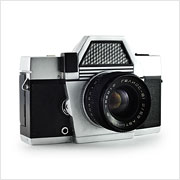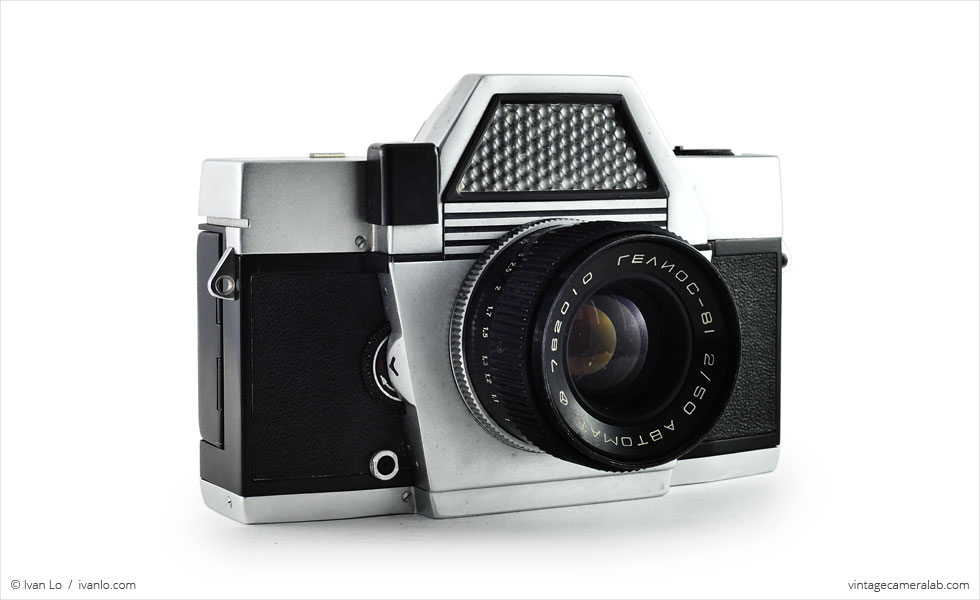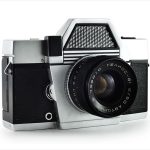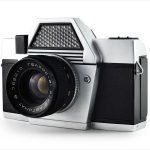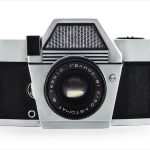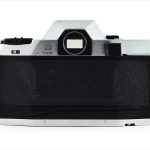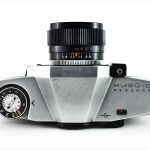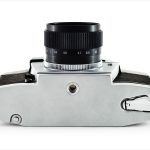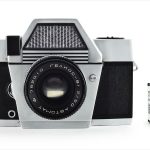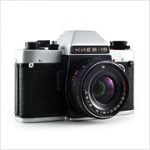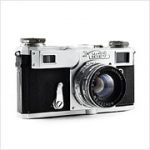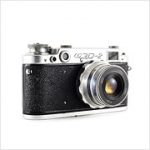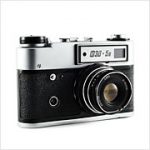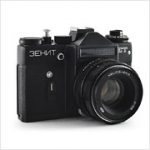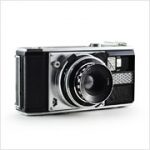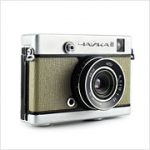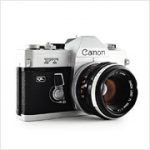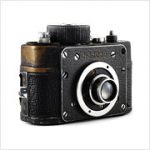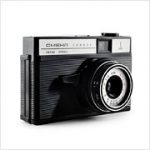Kiev-10 Automat Specifications
| Manufacturer: | Zavod Arsenal |
| Origin: | Soviet Union |
| (modern day Ukraine) | |
| Made in: | Kiev, USSR |
| (modern day Ukraine) | |
| Introduced: | 1965 |
| Type: | Single Lens Reflex |
| Lens Mount: | Unnamed Kiev-10/15 Mount |
| Format: | 135 Film |
| Dimensions: | 14.8 x 12 x 5 cm (body only) |
| 14.8 x 12 x 9.5 cm (with lens) |
Kiev-10 Automat Overview
The Kiev-10 Automat is an unusually styled 35mm SLR produced by the Arsenal Factory, one of the most well-known industrial factories in the former Soviet Union and modern day Ukraine. Due to its unconventional looks, bespoke lens system, and advanced technology, the Kiev-10 is widely regarded to be one of the most ground-breaking Soviet cameras of its day.
Besides its bulky size and hefty weight, the feature that most people notice first when they see the Kiev-10 is the large selenium light meter cell above the lens. That light meter is mated to the camera’s automatic exposure system, making it the first Soviet camera and first focal-plane shutter SLR in the world to feature such a system. The camera uses a unconventional “fan blade” shutter as well as a unique lens system built around an unnamed bayonet mount that can only be found on the Kiev-10 and its close relatives, the Kiev-15 TEE and the Kiev-15 TTL.
On the user’s left hand side of the lens is the mount release button while an aperture selection wheel can be found on the right side just above the flash sync socket and below the black rectangular shutter button with integrated cable release socket. The top plate of the camera is home to the shutter speed selector with nested film speed indicator on one side and a frame counter on the other. The bottom of the camera features the film rewind button, a tripod socket, and the film rewind knob which, when retracted, hides the film door release button.
I had been actively watching eBay auctions for the Kiev-10 for nearly two years before I came across one at the estate sale of the late Kirk Kekatos, former president and founding member of the Chicago Photographic Collectors Society. Unfortunately, Mr. Kekatos’s example was priced out of my budget so I let it go only to find one online six months later for much cheaper. I have a big soft spot for Soviet cameras and an ever bigger one for unusual cameras so the Kiev-10 is right up my alley.
Find your very own Kiev-10 Automat on eBay.
McKeown, James M. and Joan C. McKeown’s Price Guide to Antique and Classic Cameras, 2001-2002. (Grantsburg, WI, USA: Centennial Photo Service, 2001), p 313-314.
